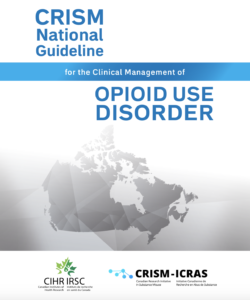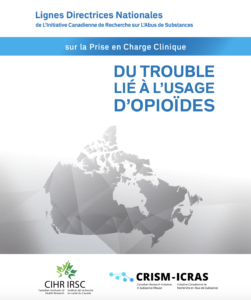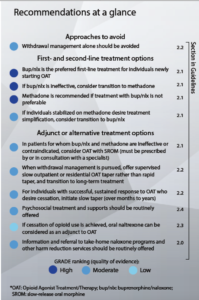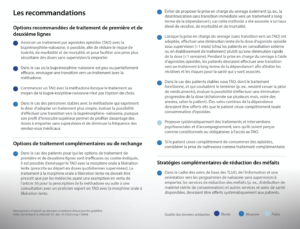2024 Updated Version
Over the past six years, additional measures have been implemented to help reduce the epidemic. Key advancements include the removal of methadone prescription restrictions in 2018 and the improvement of treatment accessibility. However, the COVID-19 pandemic exacerbated opioid-related harms due to limited service access and a toxic drug supply, with fatalities surpassing pre-pandemic levels.
To ensure optimal management of opioid use disorder (OUD), the updated 2024 CRISM National Guideline incorporates recent research, clinical insights, and input from individuals with lived experience, aiming to provide evidence-based high-standard care practices.
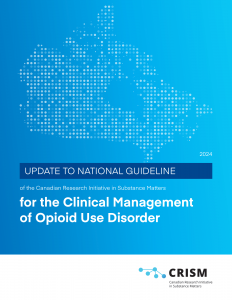
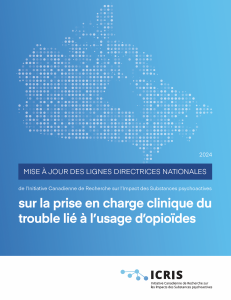
A synopsis of the Guideline was published in the Canadian Medical Association Journal (November 12, 2024): https://www.cmaj.ca/content/196/38/E1280http://www.cmaj.ca/content/190/9/E247 or download the PDF.
The French version was published by the CMAJ on February, 3, 2025: https://www.cmaj.ca/content/197/4/E99.full or download the PDF.
2018 Version
CRISM developed the first Canadian guideline for managing opioid use disorders. The guideline lays out the optimal strategies for the treatment of opioid addiction and recommends opioid agonist treatment with buprenorphine-naloxone as the preferred first-line treatment.
A synopsis of the Guideline was published in the Canadian Medical Association Journal (March 5, 2018): http://www.cmaj.ca/content/190/9/E247 or download the PDF.
CAMJ also produced a podcast, which you can listen to here
